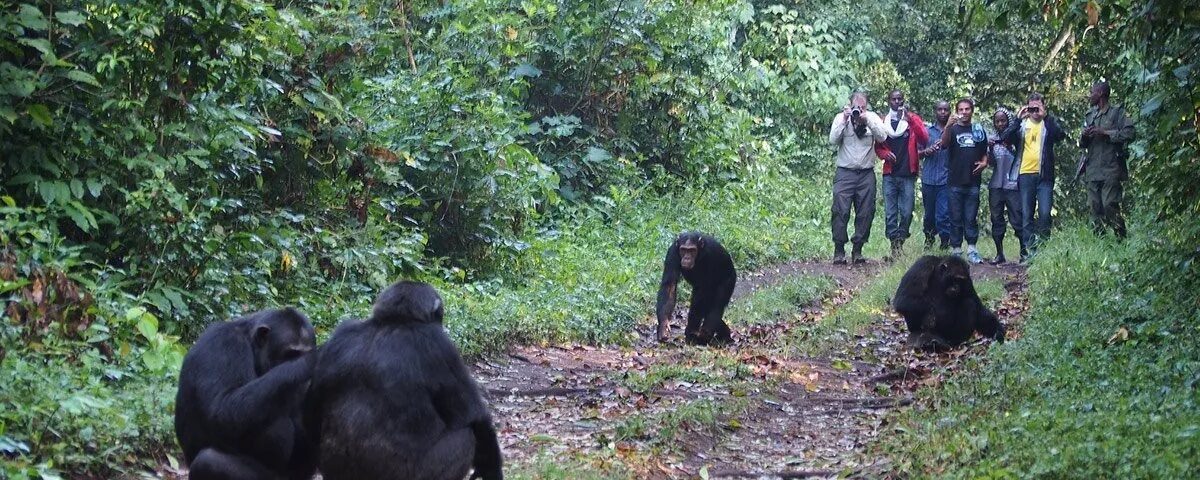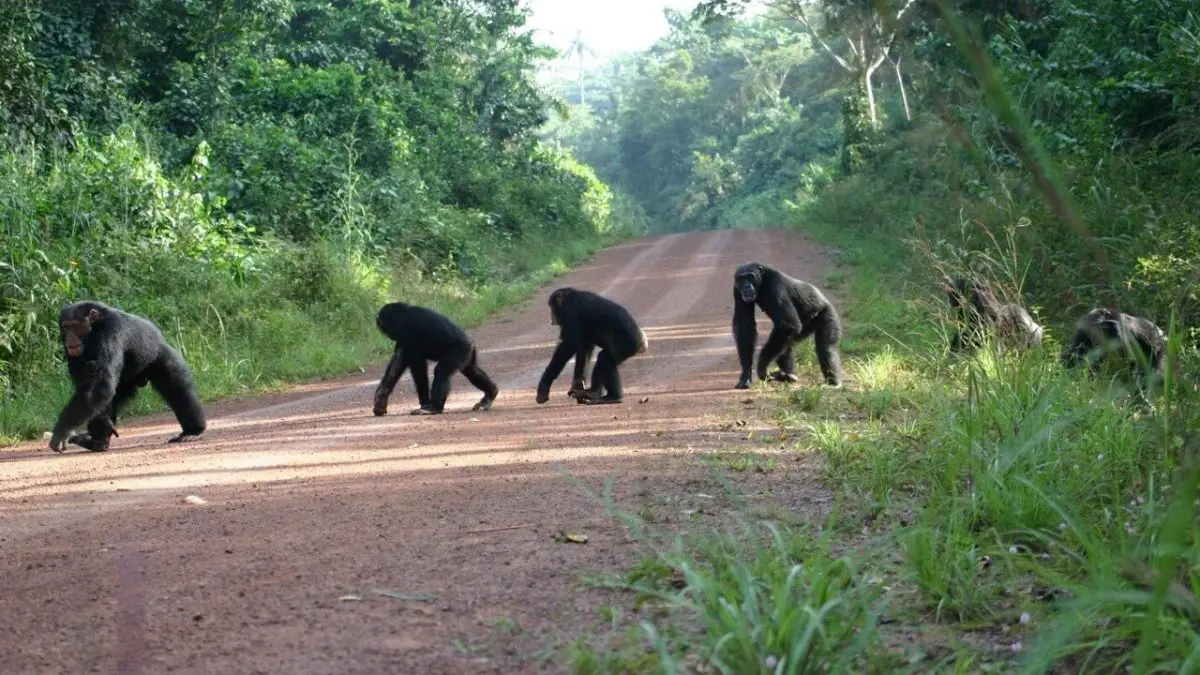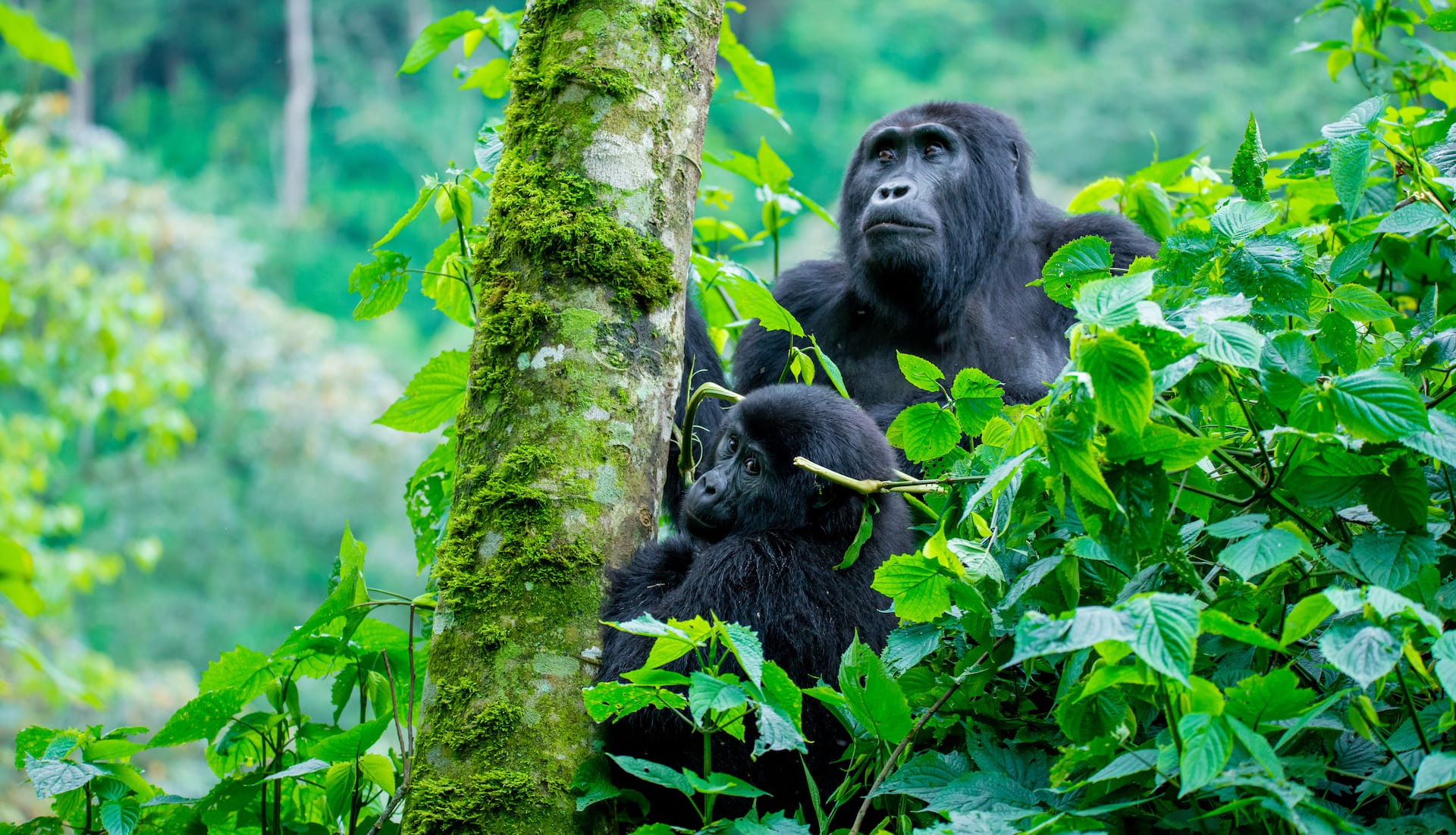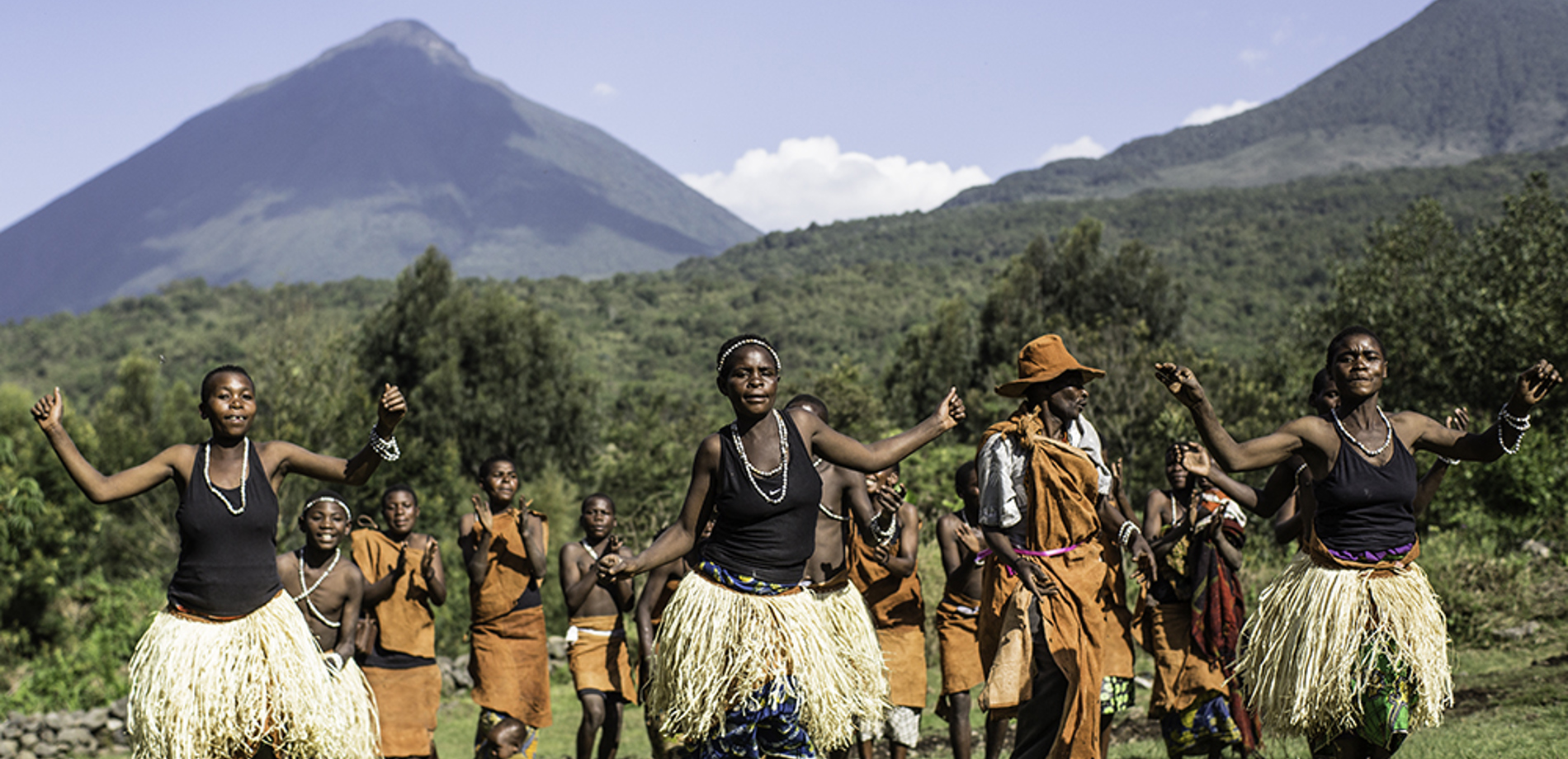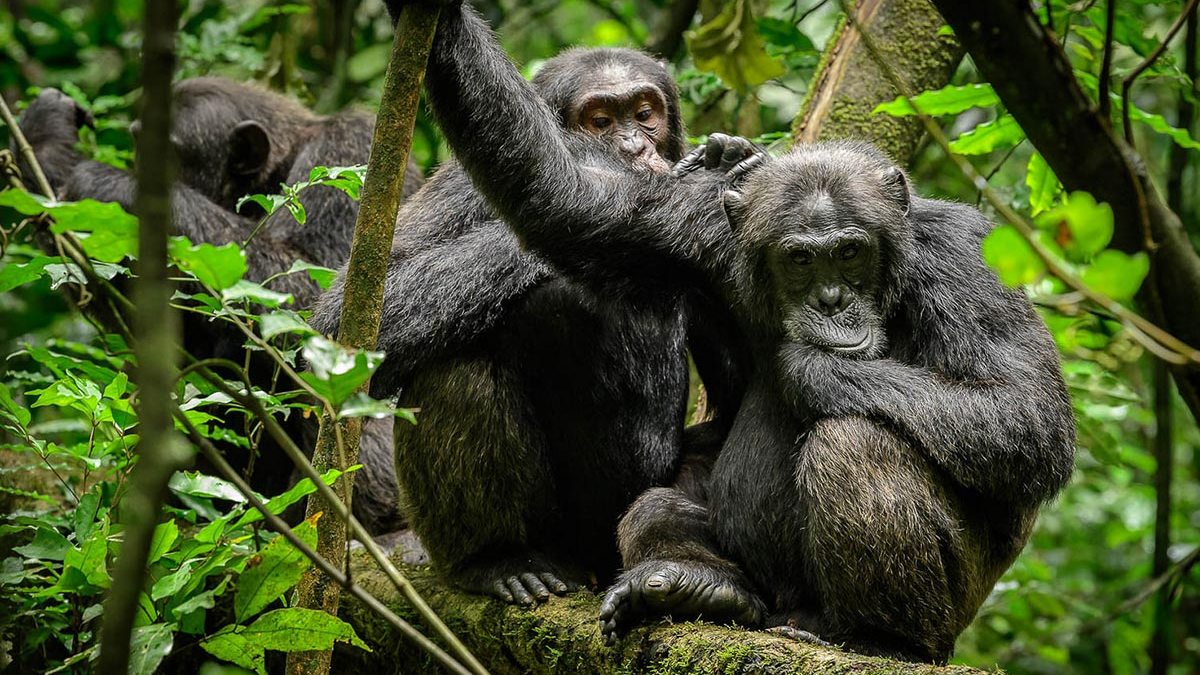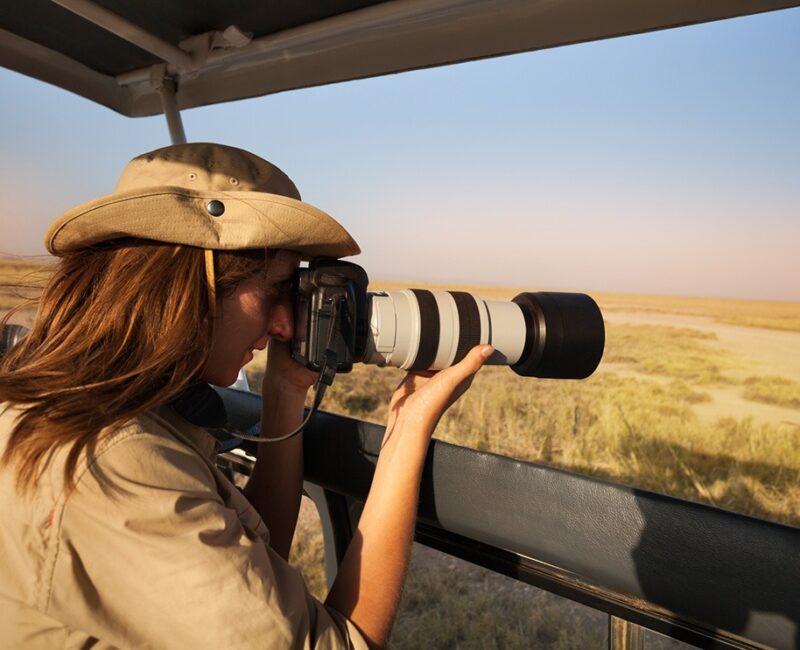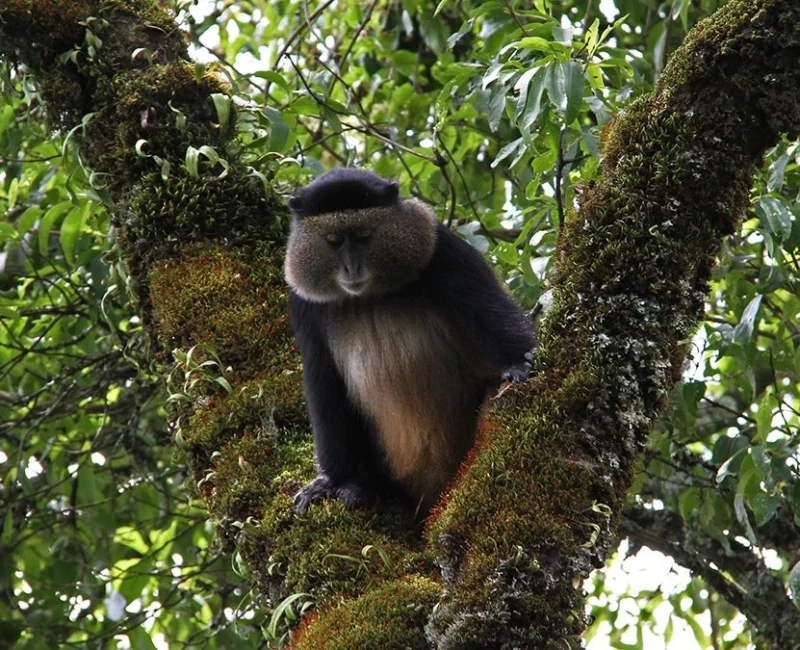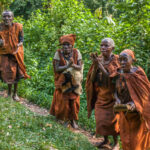
Echuya Batwa Cultural Trail Experience
September 29, 2025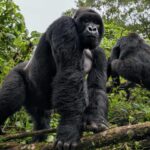
Inside The Gorilla Family
September 30, 2025Primate Conservation Success in Uganda: A Global Model for Wildlife Preservation
Uganda stands as a beacon of hope for primate conservation, demonstrating that coordinated efforts combining conservation science, eco-tourism, and community engagement can transform endangered species populations.
The remarkable resurgence of Uganda’s mountain gorilla population exemplifies this success. From a critically low number of only a few hundred individuals, mountain gorillas have now surpassed the thousand mark globally.
With Uganda hosting more than half of the species. Similarly, chimpanzees and other primates in national parks like Kibale have benefitted from protective initiatives and research programs.
Making Uganda a prime destination for Uganda Gorilla Trekking, Uganda Gorilla Safari, and broader Uganda Wildlife Safari experiences.
The synergy of eco-tourism, robust national park management, and community integration has created a conservation model admired worldwide.
Uganda’s primate sanctuaries, including Bwindi Impenetrable National Park, Mgahinga Gorilla National Park, and Kibale National Park, provide not only secure habitats but also structured opportunities for sustainable tourism.
Gorilla trekking and chimpanzee tracking tours not only facilitate intimate wildlife encounters but generate essential funding for conservation and community welfare.
Uganda’s efforts illustrate how tourism, research, and local stakeholder engagement can collectively protect wildlife while supporting economic growth.
Population Recovery and Growth of Uganda’s Mountain Gorillas
One of Uganda’s greatest conservation achievements is the growth of the mountain gorilla population. Once listed as critically endangered, mountain gorillas faced threats from poaching, habitat encroachment, and disease. Dedicated protection efforts, however, have stabilized and grown populations across Bwindi Impenetrable and Mgahinga Gorilla National Parks. Today, visitors embarking on Uganda Gorilla Trekking experiences witness a thriving gorilla community that reflects decades of meticulous monitoring, anti-poaching patrols, and habitat management.
Population growth is supported by a combination of scientific research and strict conservation protocols. Rangers monitor gorilla groups daily, ensuring safety from illegal hunting and human-wildlife conflicts. Protected habitats have been expanded and maintained to allow gorilla families to range freely. Additionally, the habituation process ensures gorillas are accustomed to human presence for trekking activities, reducing stress during encounters. This careful management contributes directly to increasing birth rates and survival rates, establishing Uganda as the home to over 50% of the world’s mountain gorilla population.
The Role of Eco-Tourism in Supporting Conservation
Eco-tourism plays a crucial role in sustaining primate conservation in Uganda. Uganda Gorilla Safaris and chimpanzee trekking tours are not merely tourist attractions; they form the financial backbone for continued protection efforts. Each permit purchased for a gorilla trekking adventure contributes directly to park management, anti-poaching initiatives, and community development programs. Similarly, Uganda Wildlife Safari operators reinvest portions of revenue into maintaining forest habitats, supporting research programs, and employing local guides and rangers.
The eco-tourism model also fosters global awareness about the urgency of primate protection. Tourists visiting Uganda engage directly with the forests, witnessing primate behaviors and understanding ecological interconnections. Tours frequently incorporate educational briefings on gorilla behavior, chimpanzee social structures, and habitat conservation, reinforcing the link between sustainable tourism and wildlife preservation. By intertwining tourism with conservation, Uganda has successfully created a system where visitor participation actively benefits primates and their ecosystems.
Community Engagement and Benefits
Local communities are indispensable partners in Uganda’s primate conservation success. Conservation programs ensure that communities surrounding national parks benefit through employment opportunities in tourism, ranger services, and hospitality. Villagers participate in awareness campaigns, learning the ecological value of primates and forests, which encourages active protection against poaching or illegal logging.
Economic benefits create tangible incentives for communities to support conservation. Revenue-sharing programs allocate a portion of tourism earnings directly to local schools, healthcare facilities, and community development projects. This approach strengthens the relationship between humans and wildlife, ensuring that primate habitats are preserved while improving quality of life for the surrounding populations. Cultural experiences offered by safari lodges near Bwindi or Kibale such as visits to local villages, traditional music, and craft markets—further integrate tourism with community benefits, enhancing visitor engagement while reinforcing conservation values.
Habitat Preservation and Protection Strategies
Uganda’s primate habitats have been carefully managed to protect biodiversity and ensure sustainable tourism. Bwindi Impenetrable National Park, a UNESCO World Heritage Site, safeguards dense forests critical for mountain gorillas. Mgahinga Gorilla National Park preserves not only gorillas but also golden monkeys, providing corridors for genetic exchange between populations. Kibale National Park, recognized as the “Primate Capital of Africa,” shelters 13 primate species, including chimpanzees, black-and-white colobus monkeys, and red-tailed monkeys.
Habitat preservation extends beyond park boundaries. Buffer zones and wildlife corridors connect fragmented forests, allowing primates to migrate safely and maintain genetic diversity. Anti-deforestation programs, reforestation initiatives, and strict regulation of human activities minimize habitat loss. These interventions ensure long-term ecosystem stability, enhancing the quality of Uganda Gorilla Safaris and Uganda Wildlife Safaris, while providing rich, biodiverse landscapes for visitors to explore.
Research, Monitoring, and Scientific Collaboration
Continuous research underpins Uganda’s primate conservation success. Scientists conduct population censuses, behavioral studies, and habitat assessments to guide management decisions. Chimpanzee and gorilla monitoring teams record health indicators, reproductive success, and social behaviors, offering invaluable data for long-term conservation planning.
International partnerships enhance these efforts, integrating expertise from NGOs, research institutions, and wildlife organizations. Collaborative studies inform best practices in habituation, anti-poaching measures, and disease prevention. This scientific foundation ensures Uganda remains at the forefront of primate conservation knowledge, allowing tourism operators to provide authentic experiences while maintaining high ethical standards. Visitors participating in Uganda Gorilla Trekking or Uganda Wildlife Tours witness the outcomes of these research efforts firsthand, reinforcing the importance of evidence-based conservation.
Gorilla Trekking and Chimpanzee Tracking: Experiencing Conservation Up Close
Visitors to Uganda gain unique access to primates through structured trekking and tracking experiences. Gorilla trekking allows small groups to spend an hour observing gorillas in their natural habitat. Chimpanzee tracking in Kibale Forest offers a chance to follow chimpanzee communities through dense rainforest, providing insight into their complex social interactions.
These experiences are guided by professional trackers and rangers, who ensure visitor safety and minimize disturbance to wildlife. Educational briefings, combined with responsible viewing practices—maintaining distance, wearing masks, and limiting group size—highlight Uganda’s commitment to ethical wildlife tourism. Such tours also provide memorable experiences while generating essential revenue for park management and community projects.
International Recognition and Global Impact
Uganda’s primate conservation efforts have garnered global recognition. The country serves as a model for integrating tourism, community engagement, and scientific research to protect endangered species. Conservation programs have transformed Uganda from a struggling region for primates into a globally admired sanctuary, offering lessons in sustainable wildlife management.
This international reputation attracts tourists, researchers, and conservationists from around the world. Uganda Gorilla Safaris and Uganda Wildlife Safaris have become flagship experiences, demonstrating that well-managed tourism can drive conservation success while providing world-class travel experiences. By hosting over half of the world’s mountain gorillas and numerous chimpanzee populations, Uganda positions itself as a leading destination for wildlife lovers and conservation enthusiasts.
Cultural Integration Around Primate Sanctuaries
Safari lodges near Uganda’s primate parks often integrate cultural experiences into wildlife tourism. Visitors can engage with local communities, participate in traditional dances, visit artisan workshops, and explore agricultural practices that support conservation. These experiences deepen visitor understanding of the relationship between humans and wildlife, reinforcing ethical tourism principles.
By combining cultural immersion with Uganda Gorilla Trekking or chimpanzee tracking, lodges provide holistic safari experiences that support local livelihoods and conservation. Guests leave with a comprehensive understanding of Uganda’s ecological and cultural landscape, creating meaningful connections that promote ongoing support for wildlife preservation.
Uganda as a Global Leader in Primate Conservation
Uganda’s primate conservation success demonstrates that thoughtful, integrated approaches can achieve remarkable results. Through population recovery, eco-tourism, community engagement, habitat protection, research, and international collaboration, Uganda has transformed its primate habitats into thriving sanctuaries. Gorilla trekking, chimpanzee tracking, and wildlife tours provide both unforgettable experiences for visitors and sustainable funding for conservation.
The collaborative model ensures that primates are protected, communities benefit, and tourists experience authentic wildlife encounters. Uganda’s achievements establish the country as a leading destination for Uganda Gorilla Safaris, Uganda Wildlife Safaris, and broader Uganda Safari Holidays. By combining conservation science, sustainable tourism, and cultural integration, Uganda offers a globally recognized blueprint for successful primate preservation that inspires wildlife protection worldwide.

